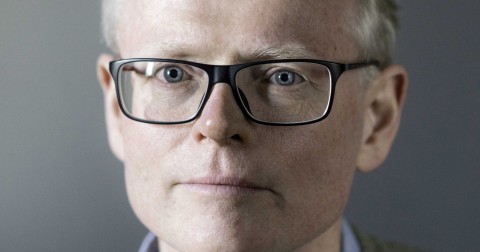
Following a century of violent anti-religious campaigns, China is now filled with new temples, churches and mosques–as well as cults, sects and politicians trying to harness religion for their own ends. Driving this explosion of faith is uncertainty–over what it means to be Chinese, and how to live an ethical life in a country that discarded traditional morality a century ago and is still searching for new guideposts.
Ian Johnson will talk about his six-year project to chronicle the return of religion, with a special emphasis on this autumn’s reappointment of Xi Jinping to a new five-year term and how his administration has sought to shape religion.
This event is being co-sponsored by The Council on East Asian Studies at the MacMillan Center
About the Speaker
Ian Johnson is a Pulitzer-Prize winning writer focusing on society, religion, and history. He works out of Beijing, where he also teaches undergraduate classes.
Johnson has spent over half of the past thirty years in the Greater China region, first as a student in Beijing from 1984 to 1985, and then in Taipei from 1986 to 1988. He later worked as a newspaper correspondent in China, from 1994 to 1996 with Baltimore’s The Sun, and from 1997 to 2001 with The Wall Street Journal, where he covered macro economics, China’s WTO accession and social issues.
In 2009, Johnson returned to China, where he writes features and essays for The New York Times, The New York Review of Books, as well as other publications, such as The New Yorker and National Geographic. He teaches undergraduates at The Beijing Center for Chinese Studies, where he also runs a fellowship program. In addition, he formally advises a variety of academic journals and think tanks on China, such as the Journal of Asian Studies, the Berlin-based think tank Merics, and New York University’s Center for Religion and Media.
He worked in Germany twice. From 1988 to 1992 he attended graduate school in West Berlin and worked a a free-lancer, covering the fall of the Berlin Wall and German unification for Baltimore’s The Sun, The St. Petersburg Times, The Toronto Star, and other newspapers. In 2001 he moved back to Berlin, working until 2009 as The Wall Street Journal’s Germany bureau chief and senior writer. He headed coverage of European macro-economics, introduction of the euro, and social issues such as Islamist terrorism.
He was twice nominated for the Pulitzer Prize and won in 2001 for his coverage of China. He also won two awards from the Overseas Press Club, and an award from the Society of Professional Journalists. In 2017, he won Stanford University’s Shorenstein Journalism Award for his body of work covering Asia.
In 2006-07 he spent a year as a Nieman fellow at Harvard, and later received research and writing grants from the Open Society Foundation, the Pulitzer Center on Crisis Reporting, and the Alicia Patterson Foundation.
Johnson has published three books and contributed chapters to three others. His newest book, The Souls of China: The Return of Religion After Mao, describes China’s religious revival and its implications for politics and society.
His other books are on civil society and grassroots protest in China (Wild Grass, 2004) and Islamism and the Cold War in Europe (A Mosque in Munich, 2010). He has also contributed chapters to three other books: My First Trip to China (2011), Chinese Characters (2012), and the Oxford Illustrated History of Modern China (2016). Please see these books’ individual pages on this site for more information.